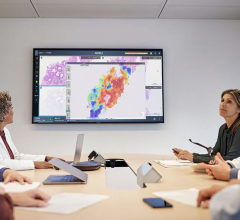September 14, 2007 – A press conference on patient safety and healthcare quality initiatives at the National Press Club in Washington, D.C., featured a data mining and artificial intelligence system that helps hospitals rapidly identify hospital-acquired infection hot spots within hospitals.
Each year more than 2 million people contract an infection during a hospital stay. Those infections add an average of more than $15,000 to a patient’s hospital bill, amounting to more than $30 billion a year. A new provision by the Center for Medicare and Medicaid Services (CMS) denies further payment to fix hospital-acquired conditions and identifies medical errors for which Medicare will no longer pay, including pressure ulcers, vascular catheter-associated infections, and hospital-acquired injuries.
Cardinal Health’s MedMined Data Mining Surveillance has helped hospitals reduce their infection rates by as much as 40 percent in one year. Its data mining, artificial intelligence, and algorithmic technologies free many hospital infection control professionals from the resource-demanding process of manual search. The MedMined service provides them with the actionable, real-time information they need to curb an HAI crisis and develop process improvements do they do not reoccur.
The Blue Cross and Blue Shield Association presented the “Quality and Safety in Healthcare: Results through Shared Commitment” press conference. It explored the innovative ways insurers and providers are working together to improve healthcare quality and patient safety.
© Copyright Wainscot Media. All Rights Reserved.
Subscribe Now


 July 26, 2024
July 26, 2024 








